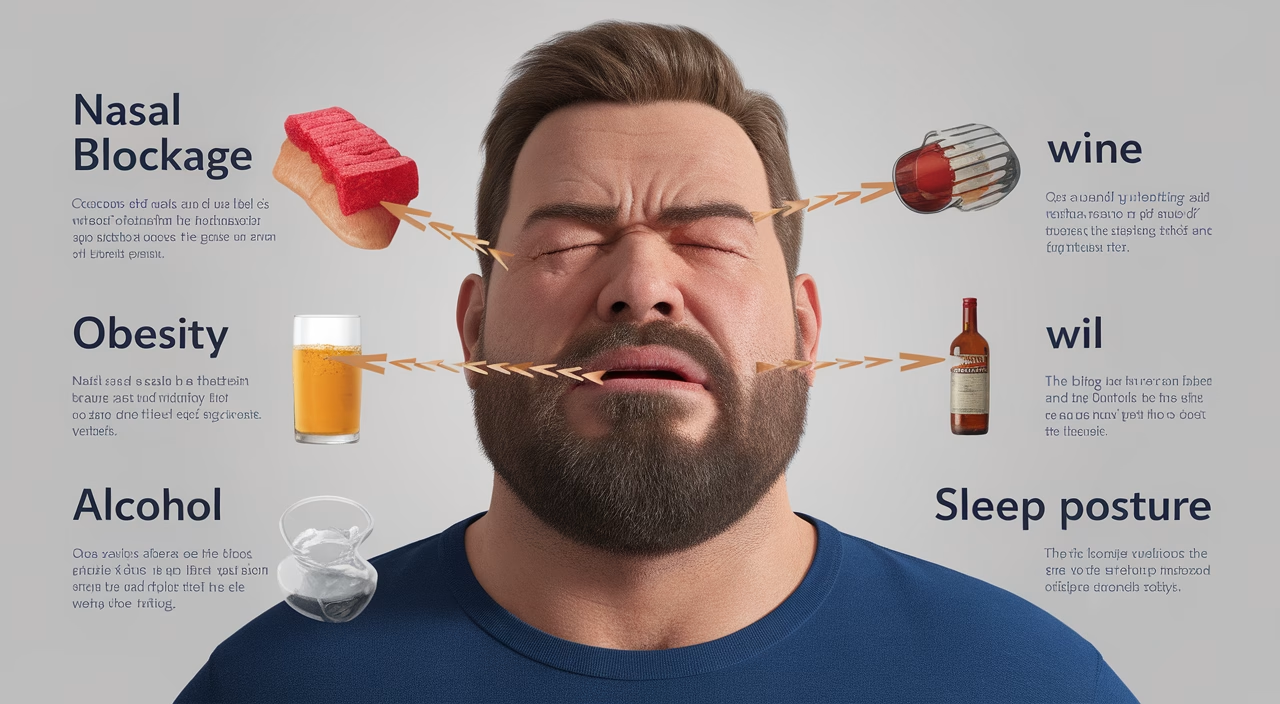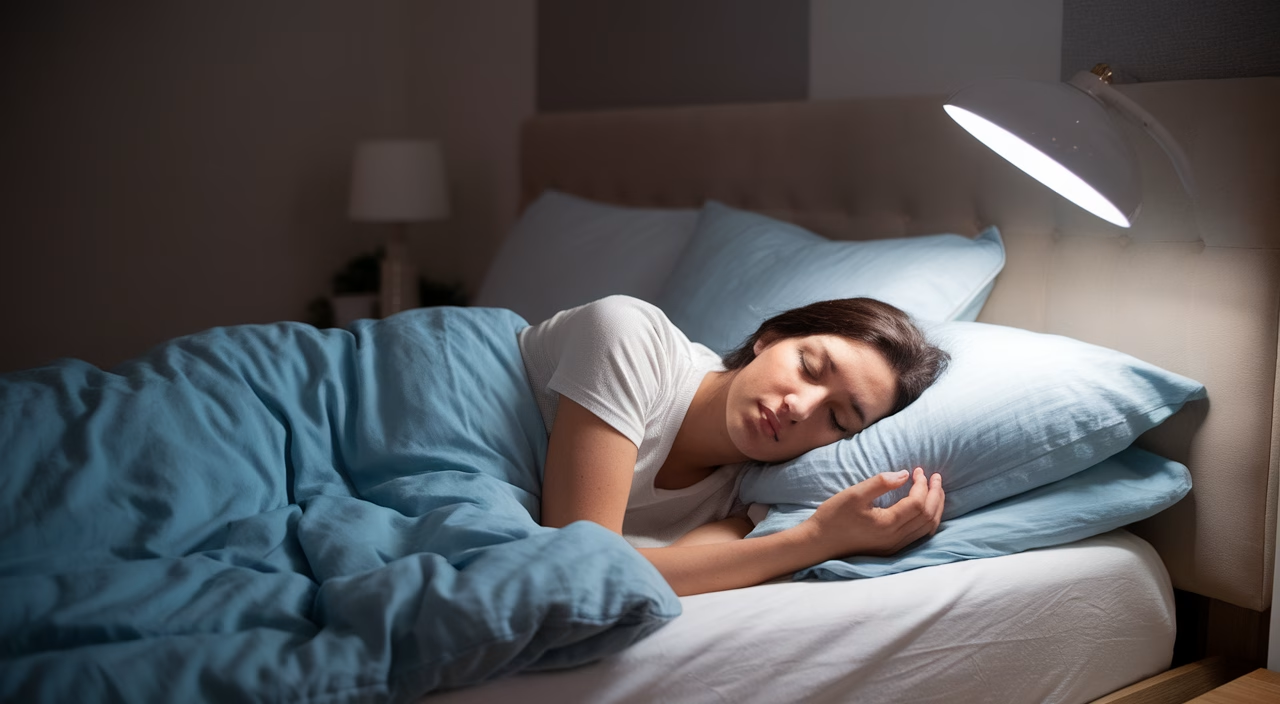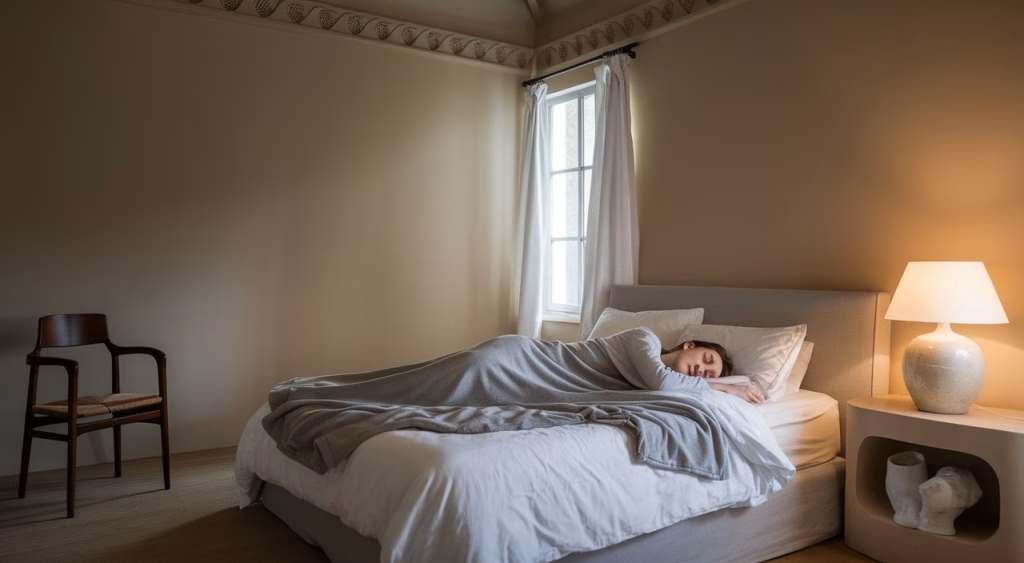What causes snoring, and what can you do about it?
Snoring happens when airflow through your mouth and nose becomes partially blocked during sleep, causing throat tissues to vibrate. While it can be harmless, snoring may also signal something more serious—like sleep apnea. The good news? Most people can reduce or prevent snoring by understanding the root causes and making targeted changes to stop snoring effectively.
TL;DR Summary
- Snoring is common, but it can be a sign of an underlying sleep disorder like sleep apnea.
- Causes include nasal congestion, obesity, alcohol use, and sleeping posture.
- Simple remedies include sleeping on your side, nasal strips, and avoiding alcohol before bed.
- Preventative lifestyle changes like weight loss and better sleep hygiene help reduce snoring long-term.
- Medical intervention matters for chronic, loud snoring or symptoms of sleep apnea like choking or gasping.
What Causes Snoring?
Ever wondered why some people snore gently while others produce loud snoring that sounds like a freight train? Snoring varies because different factors shape how air flows (or doesn’t) through your airways as you sleep.
Let’s break down the main snoring causes:
- Age: As you get older, your throat muscles weaken, increasing your snoring risk.
- Sleep position: Sleeping on your back causes your tongue and soft palate to collapse backward into the throat.
- Obesity: Extra tissue around the neck and diaphragm increases snoring potential and creates loud snoring episodes.
- Alcohol or sedatives: These relax your throat muscles, making airway obstruction more likely.
- Nasal congestion: Allergies, colds, or chronic sinus issues prevent smooth airflow through the nose, triggering mouth breathing—and snoring.
- Sleep apnea: This serious sleep disorder causes breathing to stop and start repeatedly, often accompanied by loud snoring episodes.
Understanding these snoring causes is crucial because snoring may seem harmless, but if it comes with daytime fatigue or choking during the night, you could be missing important signals from your body about how to prevent snoring complications.
Common Remedies for Snoring
There’s no one-size-fits-all fix, but the right snoring remedies are often just a matter of matching your snoring cause with the right solution. Here’s what we recommend to help you stop snoring:
- Sleep position training: Encourage side sleeping using pillows or positioning tools to prevent snoring naturally.
- Nasal dilators or strips: These physically open nasal passages, making nasal breathing easier and reducing snoring.
- Hydration and humidity: Dry air can irritate tissues and make snoring worse. Use a humidifier and stay well hydrated.
- Mouth exercises: Strengthen airway muscles through consistent oropharyngeal exercises—yes, throat workouts exist and help reduce loud snoring!
- Avoiding alcohol or sedatives: Especially within 3 hours of bedtime, to prevent deep muscle relaxation that worsens snoring.
In practice, you’ll notice different levels of success with these snoring remedies depending on consistency and underlying snoring causes. For mild snorers, simple adjustments often go a long way toward quieter nights and learning how to prevent snoring naturally.
Lifestyle Changes for Snoring Prevention
If snoring is an ongoing issue, lifestyle changes don’t just help—they’re essential for learning how to prevent snoring long-term. Rather than seeking quick fixes, think of this as a sleep reboot. Here’s what works for sustainable snoring prevention.
Weight Loss and Body Composition
Excess body fat around the neck restricts the airway—especially when lying down. Even modest weight reduction can drastically improve (or even eliminate) snoring and reduce loud snoring episodes.
Exercise and Muscle Tone
Physical activity improves muscle tone in general, including throat and tongue muscles. Keeping them firm helps prevent airway collapse during sleep and is one of the most effective ways to stop snoring naturally.
Improve Sleep Hygiene
Consistency matters for snoring prevention. Set fixed wake and sleep times. Avoid screen-time before bed. Darken your room. These improve sleep depth and reduce fatigue-triggered snoring.
Quit Smoking
Smoking inflames the nasal and throat linings, blocking airflow and promoting loud snoring over time. Quitting is one of the most important steps in how to prevent snoring.
Cost Guide: Common Snore Solutions
| Solution | Low-End | Mid-Range | High-End |
|---|---|---|---|
| Nasal Strips | $8–$12 | $15–$25 | $30+ |
| Mouth Guards | $25–$40 | $50–$100 | $300+ (custom-fit) |
| CPAP Devices | – | $600–$1000 | $1500+ |
| Humidifier | $20–$40 | $50–$100 | $100+ |
Seeking Medical Help for Severe Snoring
If your snoring is characterized by loud snoring, persistent episodes, or comes with symptoms like gasping, choking, or daytime sleepiness, you may be dealing with a serious sleep disorder. The most common is obstructive sleep apnea.
Here’s what often happens in a clinical setting when addressing severe snoring causes:
- Sleep studies (polysomnography): These assess breathing patterns, brain activity, muscle function, and oxygen levels during sleep to identify snoring causes.
- ENT evaluation: Your doctor may refer you to an ear–nose–throat specialist to rule out structural blockages like deviated septum or enlarged tonsils.
- Treatment options: CPAP machines, oral appliances, or in some cases, minimally invasive surgery to open airways and stop snoring.
What does this mean for you? Simply put: If it feels like something more serious than regular snoring, it’s worth getting evaluated. Understanding how to prevent snoring complications isn’t just about comfort—it could save your life.
Final Thoughts
Snoring doesn’t have to control your nights. Whether you’re seeking quick snoring remedies, a lifestyle overhaul to stop snoring naturally, or professional guidance for sleep apnea, there are options available for every level of concern. The key is understanding your unique snoring causes and responding with choices that fit both your needs and your lifestyle. Take action now to stop snoring and give yourself (and your partner) the gift of peaceful sleep.
Frequently Asked Questions
How do I figure out what is causing my snoring?
Start by tracking your sleep patterns and noting whether snoring is positional, related to alcohol intake, or worse when you have allergies or colds. Understanding your specific snoring causes is essential—if unsure, consult a sleep specialist for a sleep study.
When should I worry about snoring?
Seek help if you experience loud snoring that includes choking or gasping, or if you always feel tired in the morning—it could indicate sleep apnea rather than simple snoring causes.
Can natural remedies really stop snoring?
Yes, many people find success learning how to prevent snoring using side sleeping, nasal dilators, throat exercises, and lifestyle changes. Consistency is key for these snoring remedies to be effective.
Does losing weight actually help with snoring?
Absolutely. Weight loss reduces neck fat that contributes to airway collapse and loud snoring. Even a 5–10% reduction can dramatically lessen snoring severity and help you stop snoring naturally.
Can children snore too?
Yes, children can experience snoring—often due to enlarged tonsils or adenoids. Pediatric snoring shouldn’t be ignored and may need medical evaluation to identify underlying snoring causes.
Do anti-snore devices work?
Devices like nasal strips or oral appliances can be effective snoring remedies for reducing or eliminating mild-to-moderate snoring. Custom or doctor-recommended devices are typically more effective for helping you stop snoring.
Is snoring always tied to sleep apnea?
Not always. Many people experience snoring without any obstructive sleep disorder, but persistent loud snoring should be evaluated to rule out sleep apnea and identify specific snoring causes.
{“@context”:”https://schema.org”,”@type”:”BlogPosting”,”headline”:”Silence the Night: Snoring Causes & Remedies Guide”,”description”:”Learn how to stop snoring, understand its causes, discover remedies, and improve your sleep quality today.”,”datePublished”:”2024-06-15″,”publisher”:{“@type”:”Organization”,”name”:”Stop Snoring Today”,”logo”:{“@type”:”ImageObject”,”url”:”https://stopsnoringtoday.net/wp-content/uploads/stop-snorning-today.jpg”}},”mainEntityOfPage”:{“@type”:”WebPage”,”@id”:”https://stopsnoringtoday.net/”},”keywords”:[“snoring”,”loud snoring”,”sleep apnea”,”snoring causes”,”snoring remedies”,”how to prevent snoring”],”mainEntity”:[{“@type”:”Question”,”name”:”How do I figure out what is causing my snoring?”,”acceptedAnswer”:{“@type”:”Answer”,”text”:”Track your symptoms, triggers, and sleep posture. A sleep specialist and sleep study can reveal medical causes like sleep apnea.”}},{“@type”:”Question”,”name”:”Can natural remedies really stop snoring?”,”acceptedAnswer”:{“@type”:”Answer”,”text”:”Yes, natural remedies such as side sleeping, nasal strips, and weight loss can be effective when used consistently.”}},{“@type”:”Question”,”name”:”When should I worry about snoring?”,”acceptedAnswer”:{“@type”:”Answer”,”text”:”If your snoring is loud, includes gasping or stops in breath, or causes fatigue, consult a doctor to rule out sleep apnea.”}}]}





